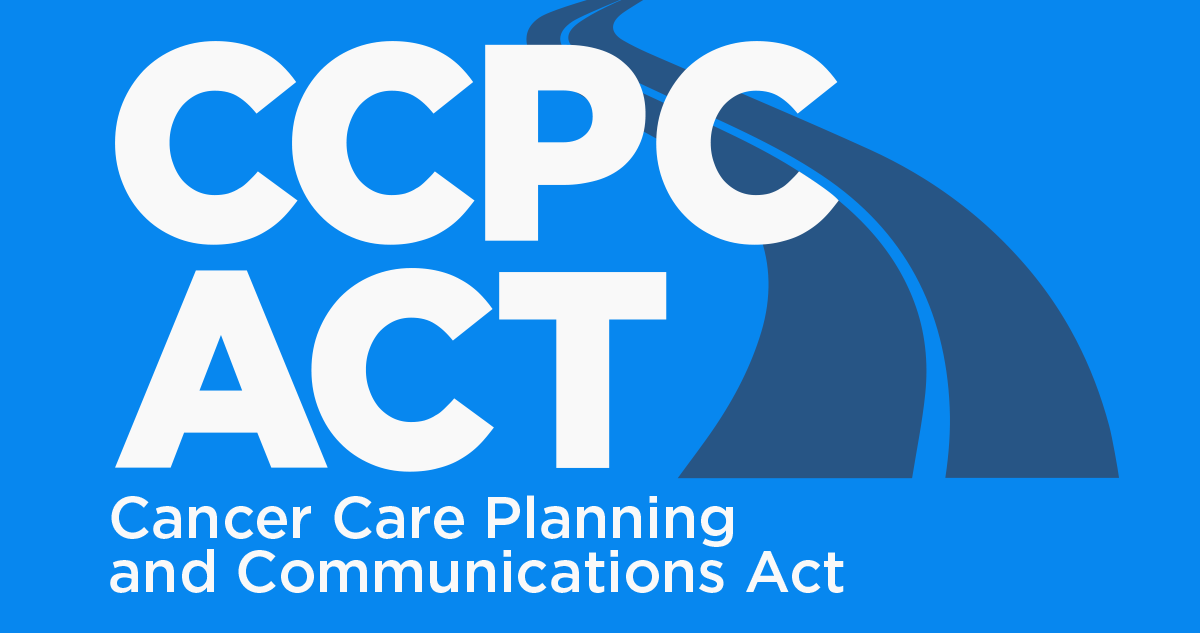
Representatives Poe and DeSaulnier Introduce Bipartisan Legislation to Help Patients Better Navigate Cancer Diagnosis
Last month, Rep. Mark DeSaulnier (D-CA) and Rep. Ted Poe (R-TX), both cancer survivors and co-chairs of the Congressional Cancer Survivors Caucus, introduced H.R. 5160, the Cancer Care Planning and Communications (CCPC) Act.
The Cancer Care Planning and Communications Act (H.R. 5160) would improve doctor-patient communication by enabling doctors to bill Medicare for the time they spend developing comprehensive cancer care plans. According to a recent study cited by the National Institutes of Health only 45 percent of patients felt adequately informed about their cancer diagnosis.
“This is very exciting and a long awaited step in cancer care, “said Carrie S. Tilley MS, ANP-BC, AOCNP, Oncology Solutions Expert at Carevive. “Having a billable code to support care plans will change many administrative and physician attitudes around cancer care planning. We have been long advocating patient care plans at time of diagnosis, during treatment, and survivorship. This focus was the driver for our cancer care management technology. We support this legislation as it encourages shared and informed decision-making between patients and their cancer care teams and empower patients with tools to manage their care from active treatment through longterm survivorship.”
This has been a longtime legislative priority of the National Coalition for Cancer Survivorship (NCCS). “The Cancer Care Planning and Communications Act is a tangible way to significantly improve the quality of care for cancer patients in Medicare,” said NCCS CEO Shelley Fuld Nasso. “Care plans before, during, and after treatment encourage communication between providers and patients, and help alleviate some anxiety at every phase of the care continuum. The CCPC Act would empower patients with tools to manage and coordinate their care from active treatment throughout survivorship.”
“Medical breakthroughs are at an all-time high, but advancements in doctor-patient communications are not keeping pace. We know that less than half of all cancer patients feel adequately informed about their diagnosis. Without a written plan explaining treatments and expected symptoms, patients are often left with more questions than answers. As a cancer survivor, who is grateful to have a healthy and full life ahead of me, I hope that my experience and this legislation will help others better navigate a diagnosis,” said Congressman Mark DeSaulnier.
A cancer care plan can be developed and shared with the Medicare beneficiary at several points in the cancer care continuum, including: at the time of diagnosis, for the purposes of planning initial active treatment; when there is any substantial change in the condition of the patient, recurrence of disease, changes in the patient’s treatment preferences, or significant revision of the elements of curative care or symptom management for the individual; and at the completion of primary treatment for cancer, when the plan may serve as a follow-up survivorship care plan.
In several evaluations of the cancer care system, the Institute of Medicine (IOM) National Cancer Policy Forum found that cancer patients rarely receive a plan of care. The IOM has said that patients should receive a cancer care plan because the upfront planning and discussion triggers a solid treatment decision-making process and facilitates the coordination of treatment and supportive care, including management of nausea and vomiting, fatigue, anxiety, and depression. After patients finish active treatment, they may transition into a different system for survivorship care. These patients require monitoring of the effects of their cancer treatment and for cancer recurrence, as well as follow-up care provided according to recommended schedules. A written plan facilitates the transition to survivorship and the ongoing follow-up that is required.
“Cancer is an epidemic in our country. Approximately 1.7 million Americans will be diagnosed with cancer this year alone. As a cancer survivor myself, I know how difficult it can be to understand what the plan for a patients’ treatment is,” said Congressman Ted Poe. “This legislation takes a positive step forward by incentivizing doctors to help their patients understand their planned cancer care path and giving them the peace of mind, all cancer patients, and their families deserve.”
“As a cancer survivor, I know firsthand how important having a care plan is to receiving the best care possible,” said Lee Jones, a cancer survivor. “A care plan is not only critical to fostering communication between a patient and doctor, but it serves as a roadmap in helping navigate the difficult process of cancer diagnosis, treatment choices, and treatment management. This is particularly true for older survivors on Medicare, who also are dealing with risk of recurrence, secondary cancers and other health issues. I am proud to support the passage of the Cancer Care Planning and Communications Act, and hope it is quickly passed by Congress to help make sure all patients receive the best care possible.”
“We commend the Congressional Cancer Survivors co-chairs for advancing this important legislation,” said Donald L. Trump, MD, FACP, CEO and Executive Director of the Inova Schar Cancer Institute. “The data show clearly that personalized and coordinated care leads to better outcomes—including longer survival! Based on these data, our center is designed as a facility where patients will have a single location to see their interdisciplinary team—medical , surgical and radiation oncologists, nutritionist, genetic and psychosocial counselors, all collaborating on a personalized plan for each patient, a treatment plan specific to the genomics and proteomics of their tumor, specific to their pharmacogenomics as appropriate and a survivorship plan to maximize the chance for survival and good health following treatment. Cancer care is more and more complicated—and successful; it is critical that physicians and patients be full partners in their treatment, that the overall plan of treatment and post-treatment care be fully developed and communicated—that’s what the Cancer Care Planning and Communications Act is promoting.”



